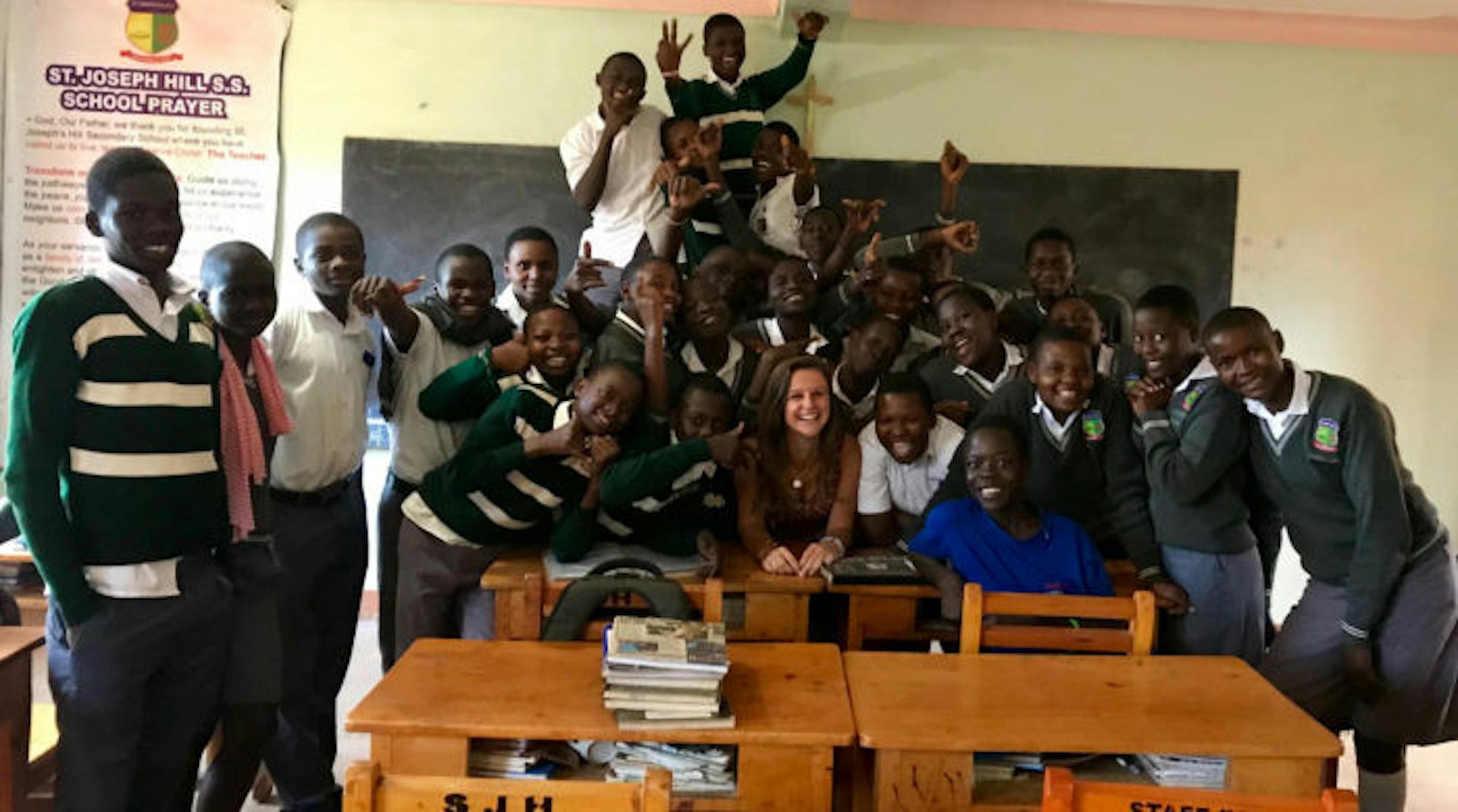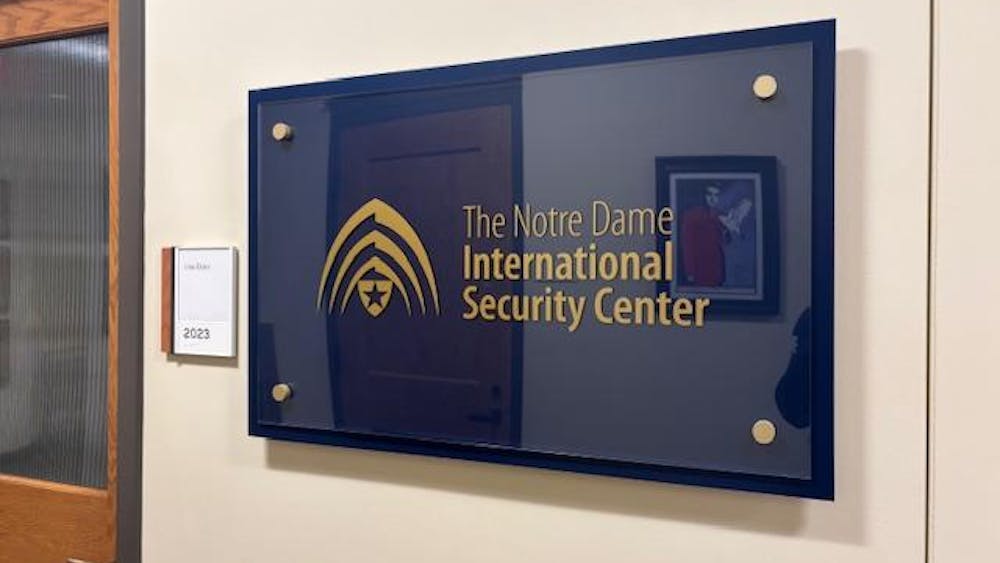Students can apply every year to conduct a summer of service abroad or in the U.S. through the International Summer Service Learning Program (ISSLP) and Summer Service Learning Program (SSLP).
This past summer, 68 students served over 80 organizations across 18 countries through ISSLP, Rachel Tomas Morgan, director of ISSLP, said in an email. In addition, 238 students served over 160 organizations in 39 U.S. states through SSLP, Ben Wilson, director of SSLP, said in an email.

Junior Meghan Guilfoile taught math and information, technology and communications classes to students in Uganda.
During the program, students typically followed a schedule. Junior Teresa Breckler was staffed at an abbey in Connecticut and said her day typically started with feeding the sheep in the morning and then attending Mass. After a morning assignment, which ranged from garden, orchard or sheep work, she said she would have a homegrown lunch, partake in an afternoon assignment and then have dinner.
Other students, such as junior Theresa Azemar, held a different schedule. Azemar worked in the north side of Syracuse, New York as a program coordinator for a youth program. Azemar said she worked from 1:00 to 9:30 p.m., and spent time in meetings with other staff members and working with the kids.
“I was able to build a curriculum, and for four weeks of those eight weeks, I was working with [high school] kids, teaching them about the history of the north side of Syracuse in regards to redlining and gentrification,” she said.
For her ISSLP experience, junior Meghan Guilfoile worked in Uganda near a Holy Cross missionary center and parish, teaching math and information, technology and communications (ICT) classes. She said in an email she taught class in the morning and then spent the afternoon and evening working on lesson plans and grading homework assignments. She also worked with nonprofit organizations.
"On the weekends, my site partner and I would attend school events like dances or school debates to spend more leisure time with our students," she said.
No matter where they worked, students said they found moments to remember and treasure in all experiences.
“I think one of the most memorable moments for me is when the high schoolers would drop their facades of ‘I’m too old for this,’ … and they would click with what I was teaching them,” Azemar said.
Junior Bo Heatherman worked in a village in Bangladesh, where he said he and another student would often visit families in their homes.
“They would just give us so much food,” he said. “ … That was one of the coolest parts of the trip was just seeing their lifestyle.”
Sophomore Alex Lewis worked at Urban Ministries in a nonprofit health clinic for the uninsured in North Carolina, and said he enjoyed working with patients consistently over the course of the summer.
“Some of my favorite experiences were days when I would work in several departments,” he said. “There was one particular day I helped one particular patient in five different capacities.”
Sophomore Anna Staud worked at the Robinson Community Learning Center in South Bend.
“One day I was working with the middle schoolers on a poetry workshop and this middle school boy turns to me and says, ‘Miss Anna, I think I really like poetry. I didn’t think I’d be good at it but I actually am.’ I still remember that so well,” she said.
While the experience was generally positive, program participants said they encountered their fair share of difficult moments.
Breckler said she got a concussion while at her SSLP.
“Learning to allow other people to care for me and learning to care for myself by cultivating a physical self-compassion [was the hardest part],” she said. “I was challenged to cultivate ... muscles and a toned body in order to do the work I needed to cultivate an interior balance and restfulness on the inside to care for myself.”
Guilfoile said the hardest part was working at a slower pace and with different communication methods.
“In the U.S., it is rude to be late to meetings or not complete work on time,” she said. “However, this was not the case in Uganda. When I asked when a meeting [would] start, I always got the response, ‘It will begin when it begins.’”
Senior Ryan Bigej worked in Lima, Peru at a center for children with disabilities, and said in an email he gained a broader perspective as a result of the experience.
“When I arrived in Lima, I had never worked with people with disabilities,” he said. “This experience helped me to realize just how much of a gift these children are. At the same time, I got an inside look at just how difficult it is for impoverished families to cope and function with a child with disabilities.”
Heatherman, whose program operated in conjunction with Bengal Bouts, said he and the three other club members who were working in Bangladesh would share their experiences with others during their meetings.
“The number one thing I’m bringing back is using what I saw and what I experienced there to help motivate people who haven’t had the chance to go and make the club more productive,” he said.
Lewis and others said the experience has helped influence their career choices.
“I’m bringing back a greater appreciation for the healthcare field, a greater understanding of how health care works and operates in the U.S. — especially for those who are uninsured — [and] a greater appreciation for service,” he said.
Staud is considering going into education or education reform after working with the Robinson Community Learning Center, she said, which shaped her decision to do an SSLP.
"[The experience gave me] an appreciation for the childlikeness and glee of all people," she said.









